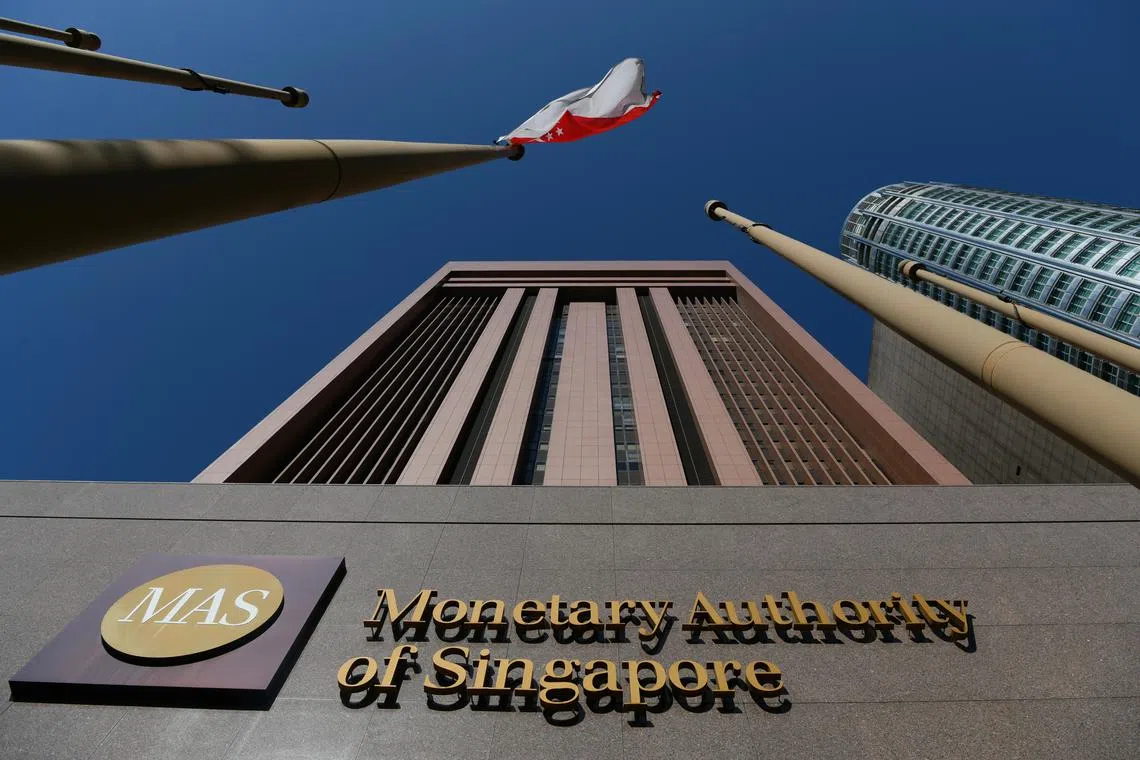MAS, global partners pledge to raise financial inclusion for underserved people, businesses
Sign up now: Get ST's newsletters delivered to your inbox

MAS signed an MOU with the International Finance Corporation and World Economic Forum to advance digital inclusion through financial services.
PHOTO: ST FILE
Follow topic:
SINGAPORE - The Republic will work with its global development partners to make essential financial services more accessible for people and businesses that have been left out of the financial system.
Singapore, together with two global bodies – the International Finance Corporation (IFC) and World Economic Forum – pledged to work on digital inclusion initiatives to reduce inequalities for people and smaller businesses in emerging and developing economies.
The Monetary Authority of Singapore (MAS) on Tuesday said it had signed a memorandum of understanding with the IFC and the forum to advance digital inclusion through financial services.
Digital inclusion refers to the use of digital technologies to provide equal and affordable access to essential services for underserved individuals and micro, small and medium-sized enterprises (MSMEs) in areas such as finance, health and education.
The partnership would have the trio focus on finding ways to make digital services more affordable and accessible, with the support of financial institutions and fintech companies.
MAS said it would include creating guidelines for financing instruments in digital financial inclusion, as well as efforts to promote the guidelines in the Asian market.
IFC would drive the development of the guidelines as it has an extensive network of financial institutions and financial support mechanisms in emerging and developing markets. The IFC is a member of the World Bank and is a global entity that offers investment, advisory and asset management services to encourage private-sector development in less developed countries.
MAS would explore synergies with its other initiatives such as the SME (small and medium-sized enterprises) financial empowerment and financial transparency corridor programmes to improve financing access for smaller businesses in emerging markets.
The forum, a not-for-profit foundation and the global body for public-private cooperation, would leverage its network of government and private-sector partners to promote and share these new solutions and learnings.
“The challenge to improve digital inclusion for billions of people in emerging and developing markets is significant, and traditional financing mechanisms alone cannot address this challenge,” said Mr Allen Forlemu, IFC’s regional industry director for the financial institutions group in Asia and the Pacific.
He added that innovative financial instruments and guidelines are needed to mobilise the trillions of dollars needed to improve digital inclusion.
Mr Sebastian Buckup, who is co-head of the Centre for the Fourth Industrial Revolution, and member of the executive committee at the World Economic Forum, said the partnership is vital to turn recommendations into concrete steps so that financing could go towards digital public infrastructure, digital skills, and digital services for the underserved.
In a separate announcement on Tuesday, MAS, together with the United Nations Development Programme and its other partners, launched an open global initiative to improve MSMEs’ access to financing. The Universal Trusted Credentials (UTC) initiative proposes a framework for credentials that characterise an MSME’s financing worthiness.
The credentials will be based on information about an entity verified from a variety of sources, such as utility providers, trade platforms and the national registry. Additional data and indicators like an MSME’s willingness to upskill itself in financial literacy and its past repayment behaviour will also be tapped.
“This gives financial institutions greater confidence that an MSME can be trusted to pay back the small-value loans provided,” MAS said in its joint statement on Tuesday.
It added that the UTC initiative will focus on building the capacity of MSMEs and improving access to such data and financing through collaborations in key emerging markets.
The UTC platform is being tested in Ghana. Further work will be conducted with central banks and financial institutions in other emerging markets to fine-tune and test the use of UTCs across borders.
MAS and its partners will also collaborate with the private and public sectors to develop a common UTC standard to ensure international compatibility and to cater for the evolving needs of the industry.

